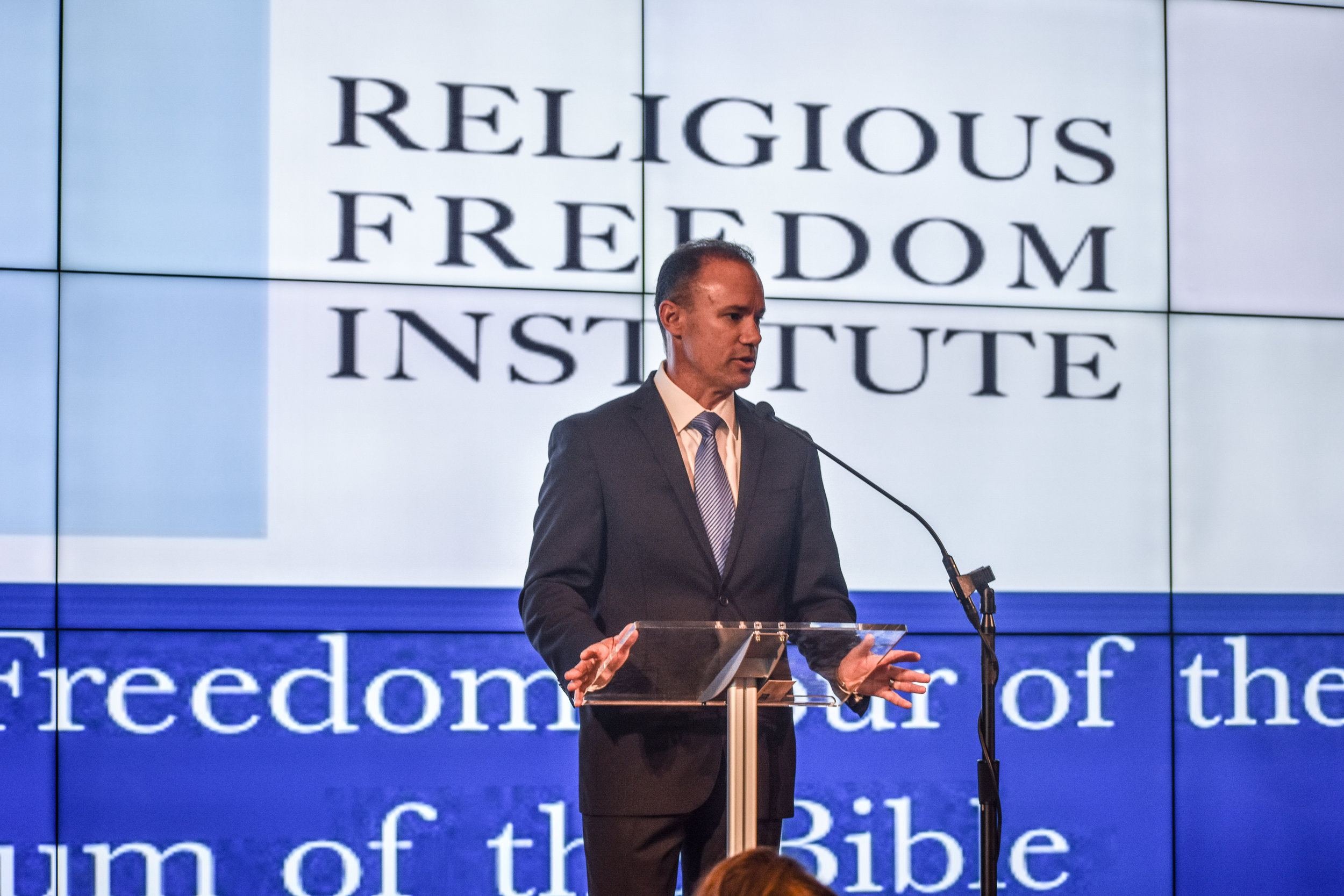“For a society to be free, one litmus test would be to ask if it has ‘freedom of scripture,’” said Religious Freedom Institute (RFI) Executive Vice President Eric Patterson. His remark, which came in the midst of a brief address at an event at the Museum of the Bible (MOTB), prompted immediate interest and conversation.
This event concluded RFI’s a week-long efforts around the second Ministerial to Advance Religious Freedom, called by U.S. Secretary of State Michael R. Pompeo to promote dialogue, collaboration, and action among governments and civil society.
Patterson explained that a necessary component of a free society is the freedom of scripture. Describing this in practical terms, Patterson added that religious people should be able to read their own scriptures publicly and privately, publish them, print commentaries on them, meet with co-religionists to study them, educate their children with them, and of course, share them with others. Moreover, whether religious or not, citizens of a free society, grounded in the principles of free inquiry and freedom of speech, should be able to access, own, study, and debate the scriptural texts of other religious traditions.
Rather than advocating for a new human rights concept or law, Patterson was pointing to a very practical dimension of religious freedom: “What is often missing in theoretical discussions about religious liberty are the day-to-day practices of the faithful, such as prayer and the reading of scripture. These daily regimens are soul food to many.” At the same time, he noted, “Making scripture widely available is a way for all citizens, whether believers or not, to better understand the diverse viewpoints and traditions which are part of the rich tapestry of public life.”
The event in which Patterson made these comments also featured MOTB’s Chief Executive Officer, Ken McKenzie, and Director of Education, Seth Pollinger, as well as, the Director of RFI’s Center for Religious Freedom Education David Trimble. RFI’s Vice President for Strategy and International Research, Timothy Samuel Shah, offered additional remarks and then led a private tour of the Museum for Ministerial dignitaries, exploring key exhibits that spotlight the profound impact of the Bible on the development of religious freedom in the U.S. and elsewhere.
THE RFI BLOG

Be More Faithful, Become More Resilient: An Invitation to Religious Institutions

How Soccer Reveals Different Meanings Of ‘Secular’ In France And The US

RFI’s Ismail Royer Meets with Delegation from India

Protecting the Unborn, Mothers, and Medical Ethics: The Stakes of Arkansas’ Amendment

Wisconsin Supreme Court Punishes Catholic Charities for Serving Everyone
CORNERSTONE FORUM

Public Bioethics & the Failure of Expressive Individualism

Religious Liberty in American Higher Education

Scotland’s Kate Forbes and the March of Secularism

70 Years of Religious Freedom in Sweden: Prospects and Challenges


